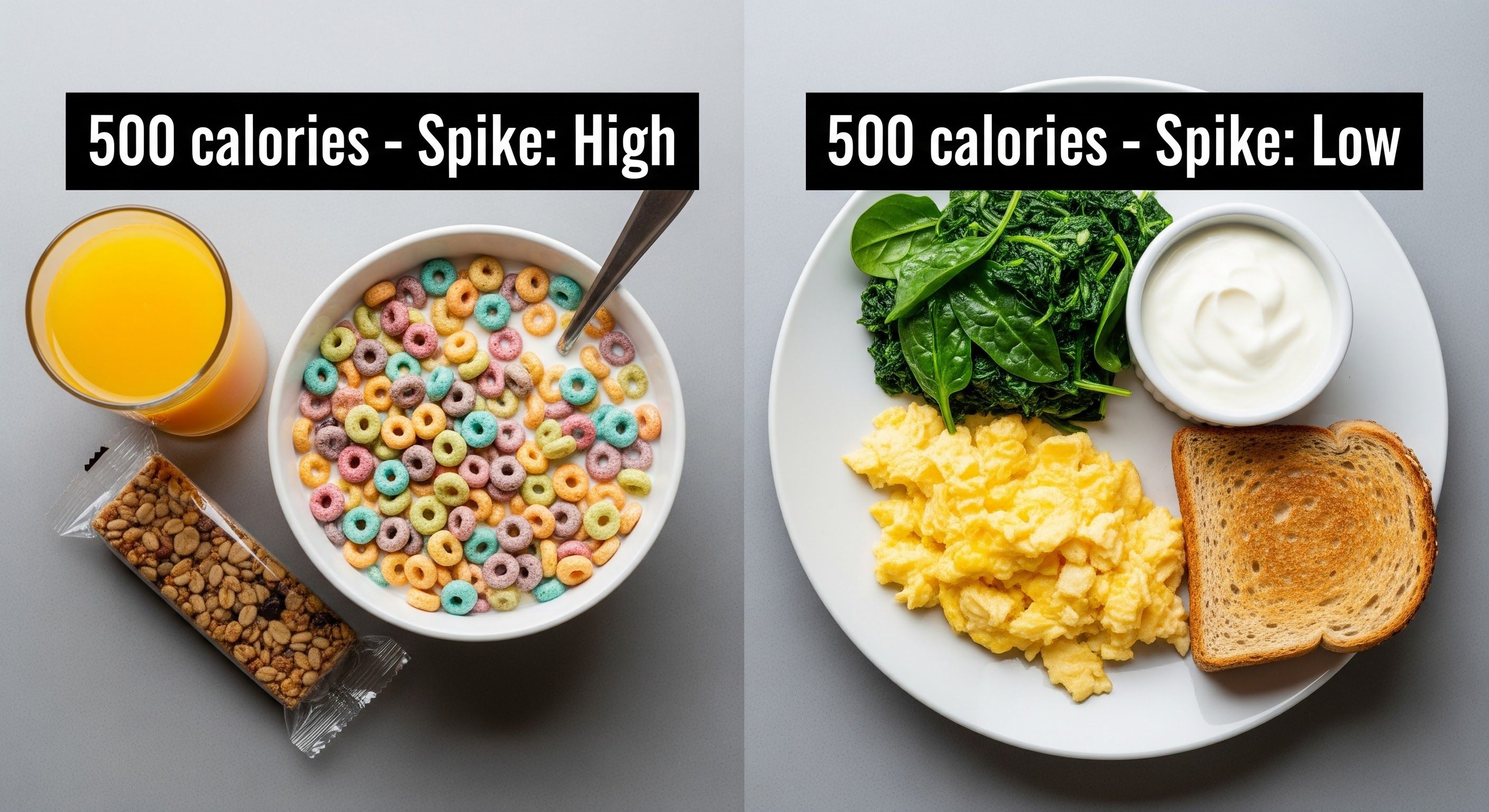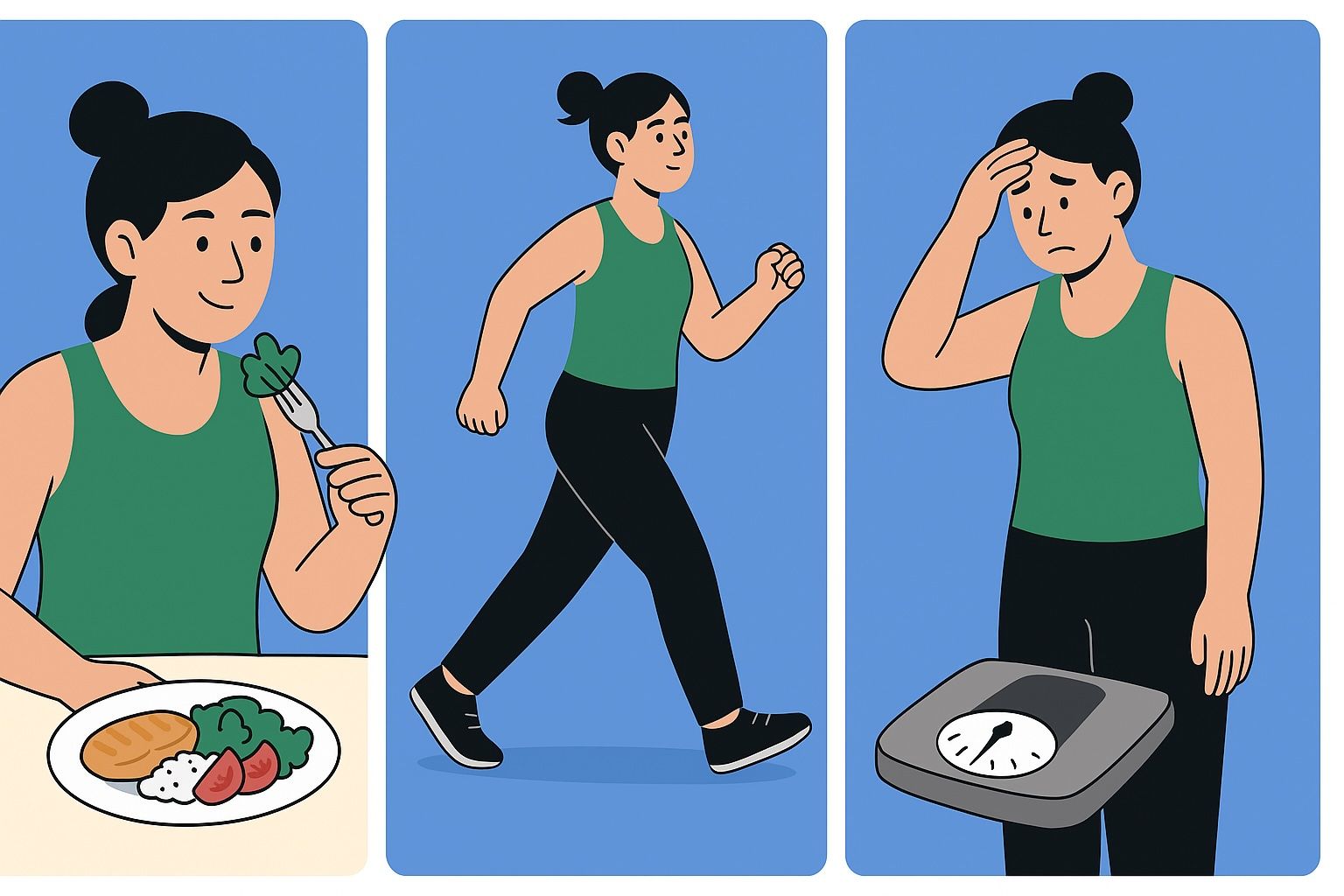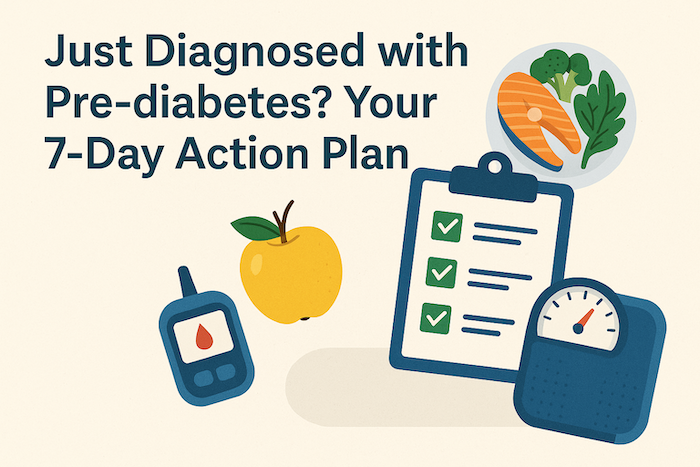Do Calories Really Matter for Prediabetes or Diabetes? The Truth Most People Miss
Published on 11/14/2025 · 📖 4 min read

Understanding Why Blood Sugar Spikes May Matter More Than Calories Alone
Disclaimer: This article is intended for general wellness education only. It is not medical advice. Please consult a healthcare provider for any medical concerns.
When many people are diagnosed with prediabetes or diabetes, the first advice they often hear is: "Eat fewer calories. Track everything. Lose weight."
But research and real-life experience suggest that calories alone don’t explain everything — especially when it comes to insulin resistance, hunger, and energy levels.
Let’s explore why blood sugar spikes may matter just as much, if not more, than calorie counts.
Why Calories Alone Don’t Always Work
For people with healthy insulin sensitivity, tracking calories can help with weight regulation. But for those with insulin resistance, prediabetes, or diabetes, the story is more complex.
1. Hormones That Regulate Hunger May Be Disrupted
Insulin resistance can affect key hormones like:
- Ghrelin (signals hunger)
- Leptin (signals fullness)
- Cortisol (linked to stress and blood sugar)
Studies show that disruptions in insulin signaling can lead to increased hunger and impaired satiety, even after calorie-controlled meals (NIH).
2. Spikes in Blood Sugar Lead to Crashes — and More Cravings
Even if someone eats a low-calorie meal, if it causes a rapid glucose spike, it often leads to:
- A big insulin release
- A subsequent blood sugar dip
- Increased cravings shortly after (CDC)
This "spike-crash" pattern is common in diets high in refined carbs or sugar, regardless of total calorie count.
3. Calorie Apps Don’t Teach You What’s Behind the Numbers
Many calorie-tracking tools focus on quantity over quality. They rarely answer questions like:
- Why do certain meals leave me starving?
- Why does energy crash mid-afternoon?
- Why does weight loss plateau despite perfect logging?
Without insight into how food affects blood sugar, calorie tracking becomes just a numbers game.
What May Work Better: Spike Awareness
A growing body of research suggests that focusing on blood sugar stability can support better outcomes for hunger, energy, and weight management (Mayo Clinic).
When people reduce their post-meal glucose spikes, they often report:
- More stable hunger levels
- Fewer cravings
- More consistent energy
- Better sleep
Even with similar calorie intake, less variability in blood sugar may support greater satiety and improved metabolic markers.
A Simple Comparison: Two 500-Calorie Meals
Two meals. Both 500 calories.
Completely different metabolic outcomes.
Meal A (500 calories)
Cereal
Granola bar
Fruit juice
Spike: 160 to 180
Crash: guaranteed
Hunger: back in one hour
Insulin: high
Meal B (500 calories)
Eggs
Spinach
Greek yogurt
Whole grain toast
Spike: 110 to 125
Hunger: stable
Insulin: lower
Energy: steady
Same calories.
Different spike.
Different day.
This is why some people feel like they are “doing everything right” but still get nowhere.
So, Should You Track Calories at All?
If you're managing prediabetes or type 2 diabetes, it's less about exact calorie tracking and more about learning:
- Which foods support stable energy
- How to build balanced meals
- What patterns help reduce cravings
The goal isn’t restriction — it’s insight.
Where GlucoSpike AI Can Help
GlucoSpike AI helps you understand how meals may affect your blood sugar patterns without needing a wearable. It can:
- Suggest how to balance meals for fewer spikes
- Show trends in hunger or energy crashes
- Help you build sustainable habits
Rather than counting calories alone, GlucoSpike focuses on feedback and awareness. That’s often the missing piece in nutrition coaching.
Where GlucoSpike AI Fits In
Not salesy. Just practical.
GlucoSpike AI is built on one principle:
Your body doesn’t care about calories if your glucose is all over the place.
It shows you:
- Will this meal spike you
- What to add to balance it
- How protein or fiber will change the impact
- What to improve next time
- Which meals are great, okay, or poor
- What will give stable energy
- What will crash you
This is the type of feedback people actually need.
Not numbers. Not fear.
Guidance.
People don’t fail diets because they lack willpower.
They fail because they don’t understand how food affects their body.
GlucoSpike closes that gap.
Author Bio:
This article was written by a wellness content specialist for GlucoSpike AI. The content is intended for educational purposes and does not constitute medical advice.
Sources:
 GlucoSpike AI
GlucoSpike AI 

